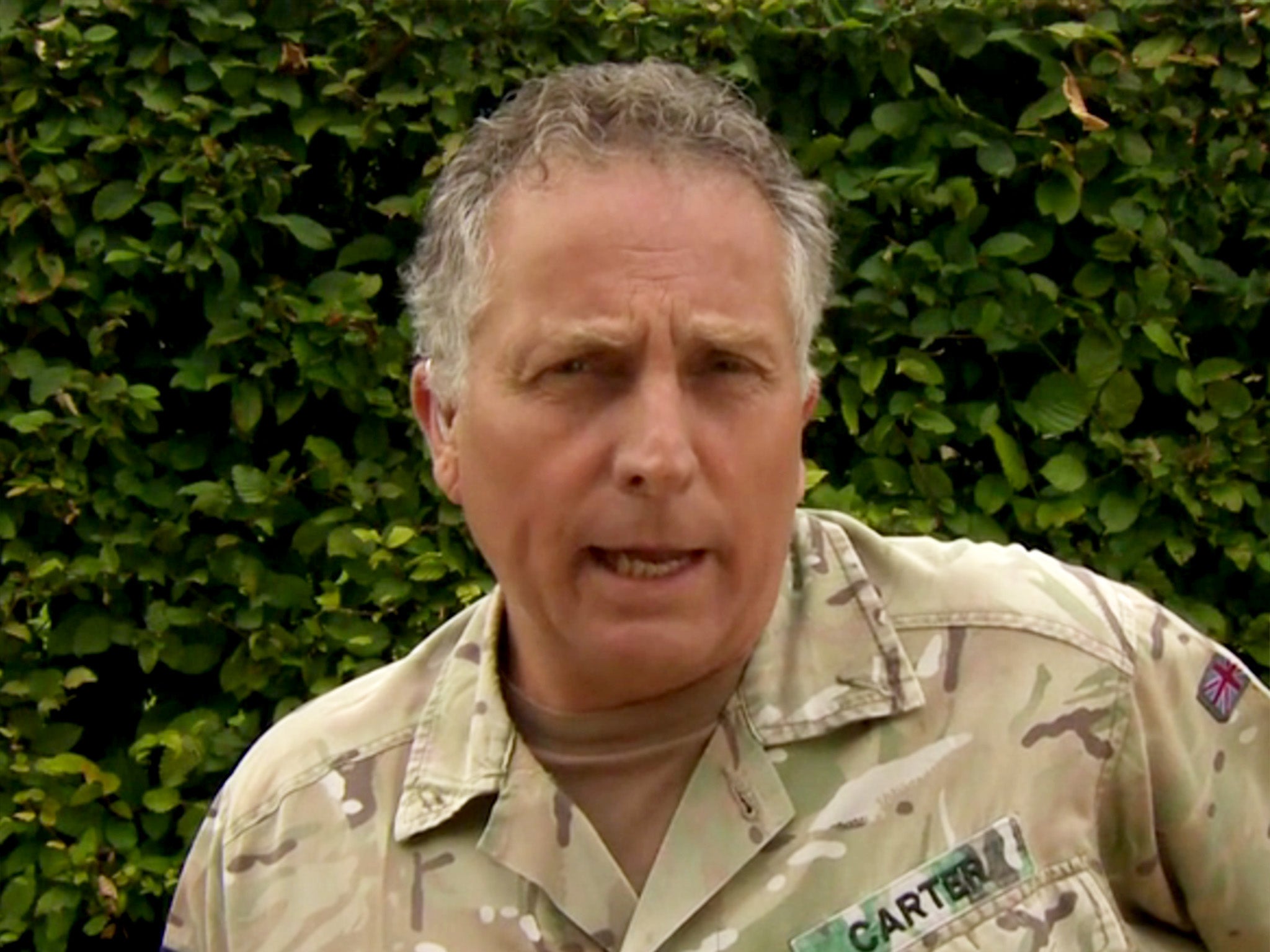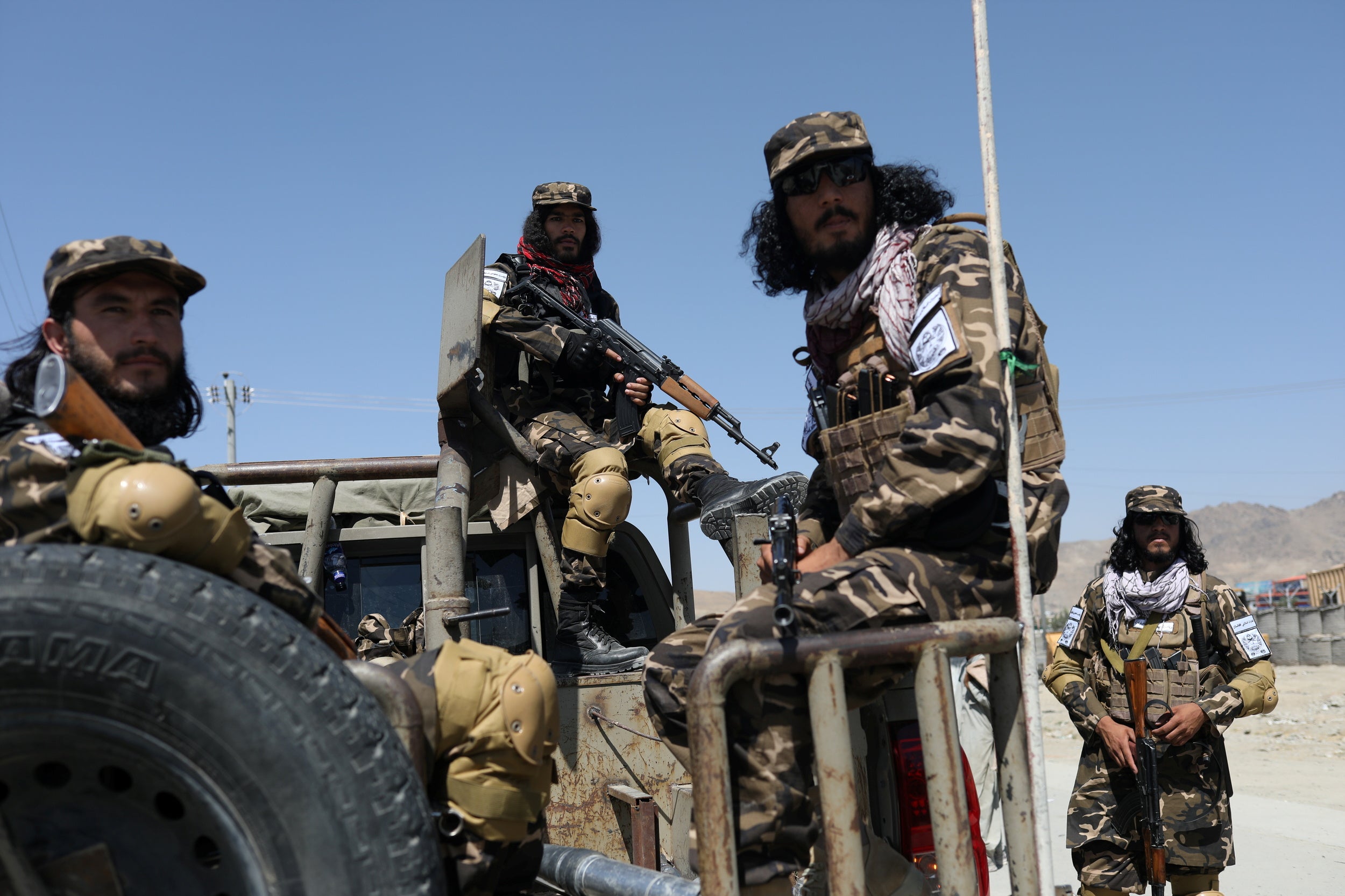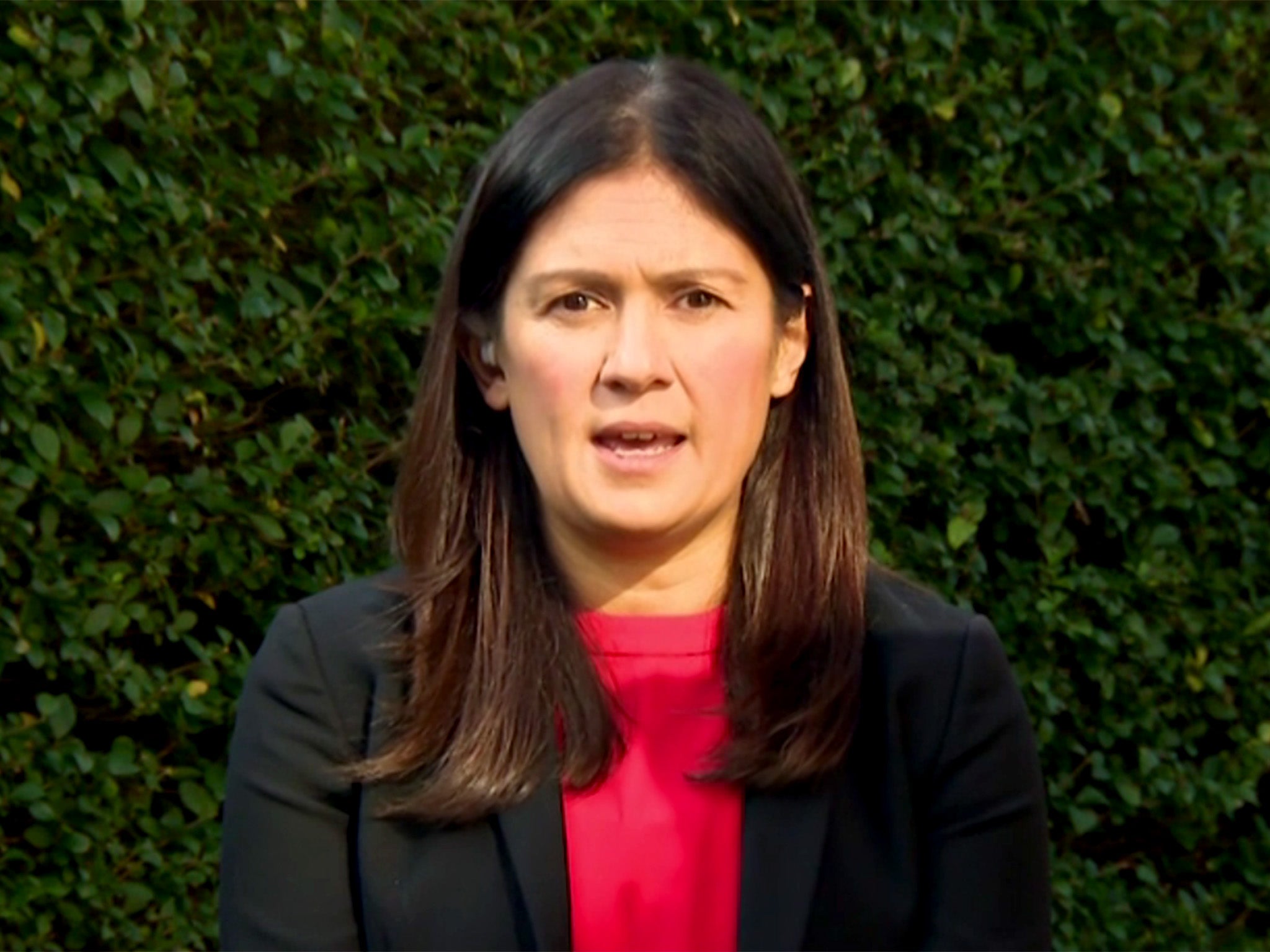Taliban may need outside help as they struggle to form effective government for Afghanistan, says military chief
Insurgents suffering from ‘catastrophic success’, claims head of UK armed forces

Your support helps us to tell the story
From reproductive rights to climate change to Big Tech, The Independent is on the ground when the story is developing. Whether it's investigating the financials of Elon Musk's pro-Trump PAC or producing our latest documentary, 'The A Word', which shines a light on the American women fighting for reproductive rights, we know how important it is to parse out the facts from the messaging.
At such a critical moment in US history, we need reporters on the ground. Your donation allows us to keep sending journalists to speak to both sides of the story.
The Independent is trusted by Americans across the entire political spectrum. And unlike many other quality news outlets, we choose not to lock Americans out of our reporting and analysis with paywalls. We believe quality journalism should be available to everyone, paid for by those who can afford it.
Your support makes all the difference.The new Taliban rulers of Afghanistan are suffering from their own “catastrophic success” and are struggling to work out how to govern the country they conquered so quickly, the head of the UK’s armed forces has said.
Chief of the Defence Staff General Sir Nick Carter warned that the ability of the Taliban to form an effective government could be the key to ensuring Afghanistan does not again become a safe haven for terrorist groups to launch attacks on the west.
And he said the international community must be ready to offer “help” to the group on the condition that they govern less repressively and respect human rights.
Gen Carter faced criticism following the fall of Kabul last month for suggesting that the new Taliban regime may be “more reasonable” than that of the brutal fundamentalists who imposed a reign of terror and permitted the establishment of terror training camps in the country prior to their ousting in 2001.
But today he insisted it was too early to pass judgement on how the Taliban will govern Afghanistan – or their ability to do so.
He said deep rifts were already becoming apparent between the Political Commission, who have provided the Taliban’s nominal leadership from a base in Qatari capital Doha, the Pakistan-based Haqqani network, which has had close links with al-Qaeda, and other factions within Afghanistan.
“The Taliban are going to struggle with governing the country,” Gen Carter told BBC1’s TheAndrew Marr Show. “It’s one thing achieving the unity of purpose to knock a government over; it’s quite another trying to govern a country.
“And what we have seen is that it is factionalising and you’ve got a real rift between the Haqqanis, the southerners from Kandahar, and the Political Commission, who’ve been resident in Doha for so many years. Whether they can pull that together or not is the really interesting question at the moment.”
Gen Carter said that if the Taliban fails to form an effective government then “all bets are off”, with terror groups potentially able once more to thrive within a failed state.
But he suggested that the Taliban may seek to compromise with more moderate forces within Afghan society, which has changed radically during their 20 years out of power, with more than half the population too young to remember the previous fundamentalist regime.
“If the Political Commission is able to form an inclusive government, it is possible that they may govern less repressively – we have to wait and see,” he said.
“At the moment they suffer from what we military call ‘catastrophic success’. They were not expecting to be in government as quickly as they have appeared, and the reality is they are trying to find their feet.
“We need to wait and see how this happens and recognise that they’re probably going to need a bit of help in order to run a modern state effectively. And if they behave, perhaps they will get some help.”
Gen Carter said that he and others had “got it wrong” in thinking the most likely scenario as US troops withdrew from Afghanistan was that the national government would hold on to control of the country for a few months at least.
“It was the pace of it that surprised us and I don’t think we realised quite what the Taliban were up to,” he admitted.
“They weren’t really fighting for the cities they eventually captured, they were negotiating for them, and I think you’ll find a lot of money changed hands as they managed to buy off those who might have fought them.”
He rejected suggestions from foreign secretary Dominic Raab that military intelligence was to blame for missing the signs of imminent collapse.
“The fact of the matter is that it’s not purely about military intelligence,” said Gen Carter. “It’s really a much broader thing than just strictly military intelligence.”
The chair of the House of Commons Foreign Affairs Committee, Conservative MP Tom Tugendhat, agreed that there were signs of the Taliban “fighting within itself” and being unable to form a government.
But he poured cold water on hopes of a more benign rule, insisting the group was “still as brutal and vicious as they were” during their first period in power from 1996-2001.
The former soldier, who served in Helmand province, said that the UK would have to engage with the new regime, but said the idea of formal talks was “bizarre”.

“The UK has always had a policy of reaching out in different ways to different groups,” Mr Tugendhat told Sky News’s Trevor Phillips on Sunday.
“I have to say I think formal talks with the Taliban are a somewhat bizarre idea given that it doesn’t have a formal structure.
“The fact that it still hasn’t formed a government two or three weeks after it took Kabul is partly an indicator of the divisions within the organisation: it is fighting within itself as to what it does. So, the idea that these talks are meaningful in a traditional sense, I’m afraid they’re not.
“The idea that the Taliban is changed – it’s got a much slicker PR outfit; I don’t know who it’s hired but it’s got a similar group to the people who are doing Isis PR in northern Syria – but the [idea] that it’s changed the way it treats women, or [that it no longer] murders minorities, is complete rubbish: they’re still as brutal and vicious as they were.”
Shadow foreign secretary Lisa Nandy said the UK would have to talk to the Taliban in the hope of securing safe passage out of the country for UK nationals who were unable to reach the borders unaided for health reasons, or because they are unaccompanied children.
“We have thousands of people still in Afghanistan, the Afghans who assisted us but British nationals as well,” Ms Nandy told Sky News.
“The defence secretary has been suggesting ... that, if they can, they should just try to get to the border and see if they can get across.
“But without safe passage, many of those people will simply not reach safety. We have got British nationals in wheelchairs, we’ve got children who have been separated from their parents, we’ve got somebody who is on dialysis.

“The truth is, if we want to uphold the promise and commitment that we made to our own citizens and to the many Afghans who assisted us over recent decades, we have got to have a dialogue with the Taliban, we’ve got to ensure as a priority that safe passage across the country. We’ve got to be talking to the Taliban as well about the functioning airport, and whether a country like Turkey or Qatar could somehow guarantee the safe passage of our citizens out of that airport.”
Ms Nandy said it was “really pressing and urgent” to have a dialogue with the Taliban.
But she added: “That’s different from diplomatic recognition, which would be far too premature.”



Join our commenting forum
Join thought-provoking conversations, follow other Independent readers and see their replies
Comments